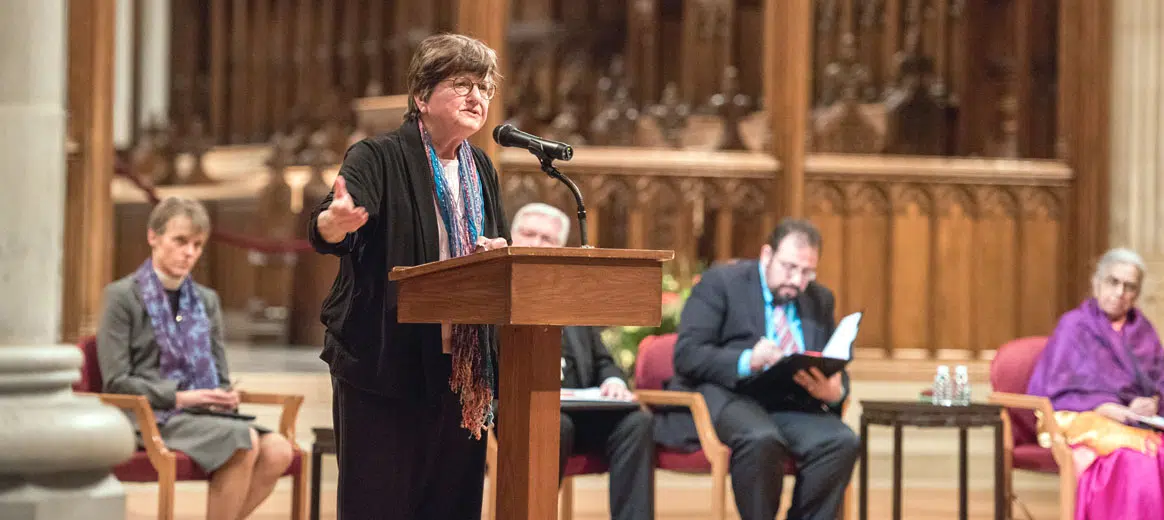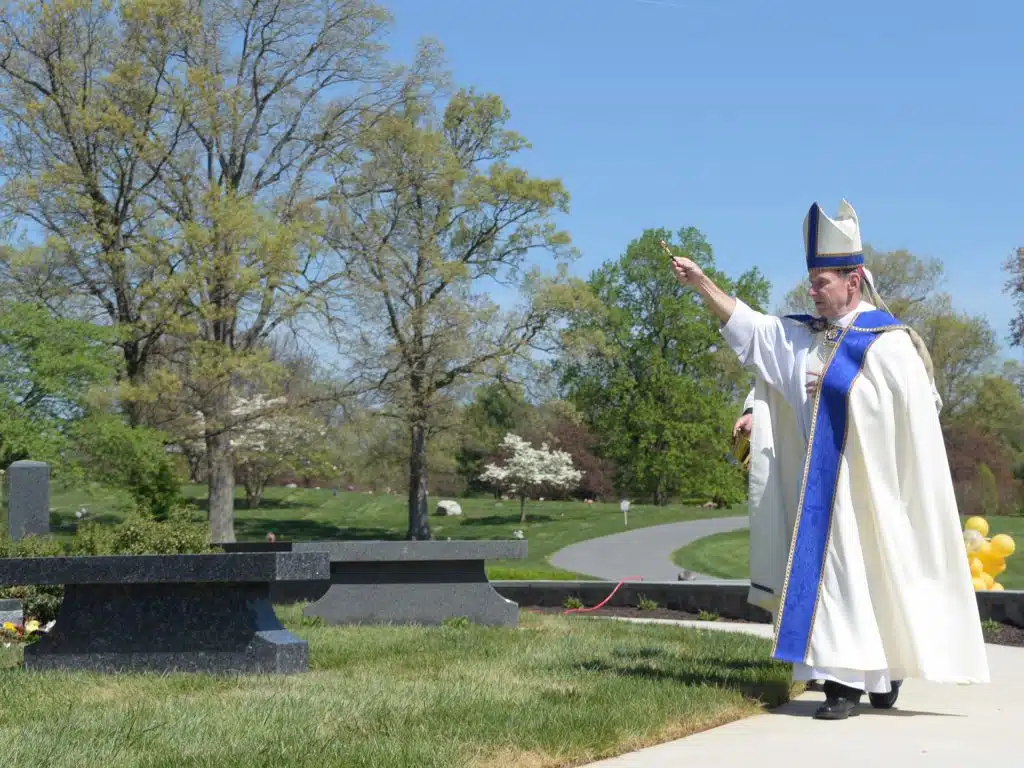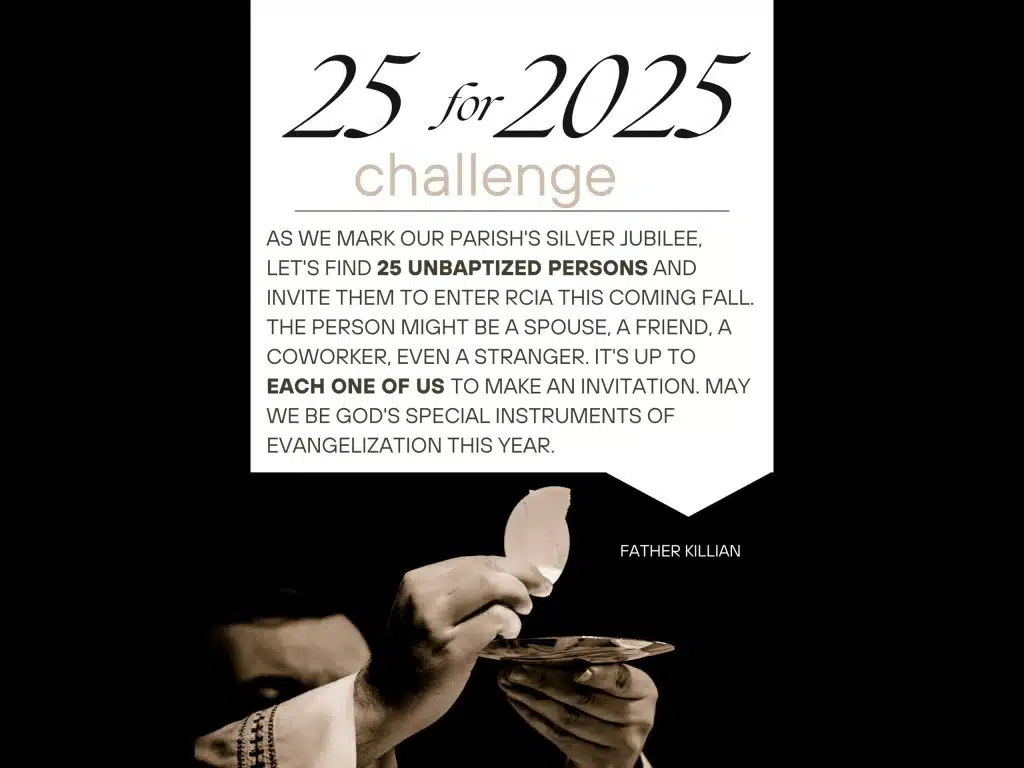“Dead Man Walking,” an opera based on Sister Helen Prejean’s book
of the same name, will give attendees the opportunity to see the effect of the
death penalty on a certain subset of people, according to Michael Solomon,
senior press representative for the Washington National Opera.
“We’re not taking sides on the issue,” he said. “We’re letting
the art speak for itself. The success of ‘Dead Man Walking’ is because it takes
on an important issue and infuses it with emotion that only music can provide.”
At a related event Feb. 6 at the Washington National Cathedral,
Sister Prejean, and E.J. Dionne, political columnist for The Washington Post, moderated a panel discussion of
six religious leaders to discuss the death penalty. The panelists included
Bishop Frank Dewane of the Diocese of Venice, Fla.; Imam Yahya Hendi, Muslim
chaplain at Georgetown University; Dr. Uma Mysorekar, president of the Hindu
Temple Society of North America; Episcopal Bishop Mariann Budde of the Diocese
of Washington; Rev. Gabriel Salguero, founder of the National Latino
Evangelical Coalition; and Rabbi Hannah Goldstein, associate rabbi at Temple
Sinai in Washington. Panelists were asked to share their journey to the
decision to oppose the death penalty.
In her introduction, Sister Prejean urged the audience to attend
the opera, noting the effect of music on the story. She said the opera takes
you on a spiritual journey through drama and music, which “can take us into
places of our hearts we don’t even know we have.”
“We need art to open up the heart and bring us to places we are
never going to go,” she said. “I stand as a witness to share the story. Come
with me, let me tell you what I learned, what I saw. Then you take it into your
own soul and you, in prayer, work out what is it that you are being called to
do.”
The story is based on Sister Prejean’s work as a spiritual
director for death row inmates. Solomon believes the opera will provide a
different perspective from the book or movie.
“Coming into an opera and watching the story unfold live, with
music at its core, will affect (the audience) in a totally different way,” he
said.
“Dead Man Walking” runs from Feb. 25 through March 11 at the
Kennedy Center. Catholic Mobilizing Network, co-founded by Sister Prejean, was
one of the sponsors of the panel discussion and is offering a backstage tour of
the opera house, discounted tickets and a reception following the performance
March 5 at 2 p.m.
The opera features Kate Lindsey as Sister Helen Prejean, Michael
Mayes as Joseph De Rocher and Susan Graham as Mrs. De Rocher. Elizabeth Bishop,
Catherine Martin and Hunter Enoch, understudies, performed arias from the opera
before and after the panel discussion.
“It is long overdue that it is being presented in Washington,”
said Solomon.
“Dead Man Walking” is one of the most performed modern operas,
according to Solomon. The opera premiered in October 2000 at the War Memorial
Opera House in San Francisco and was produced by the San Francisco Opera. It
was written by Jake Heggie and the libretto was written by Terrence McNally.
The Washington National Opera is hosting several related events.
People will have an opportunity to talk to members of the creative team and find
out what makes this show important to them Feb. 18 at 5:30 p.m., said Solomon.
Talk-back sessions, which provide audience members the opportunity
to speak with cast members and the creative team, and share their thoughts on
their experience, will follow every performance of “Dead Man Walking” because Solomon
expects there will be a lot of reaction.
“I hope there will be a dialogue between the audience members,”
he said. “We want the audience to go on an emotional journey with us and we’d
like them to go away with a deeper understanding of the issues.”



